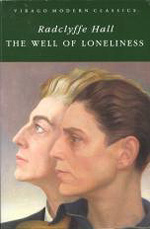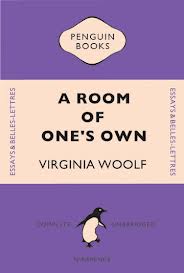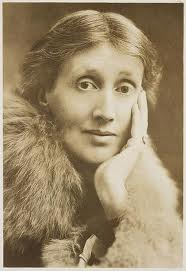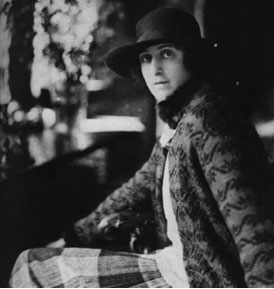 In A Room of One’s Own, Virginia Woolf mentions many precarious topics. Most of the essay is spent dissecting why women have not had success in writing, how they are oppressed by men, what she thinks they can do to become successful writers. Woolf also brings up issues surrounding gender, sex, and homosexuality. In today’s world, these topics and analyzed and discussed through and through, but that was not so in Woolf’s world.
In A Room of One’s Own, Virginia Woolf mentions many precarious topics. Most of the essay is spent dissecting why women have not had success in writing, how they are oppressed by men, what she thinks they can do to become successful writers. Woolf also brings up issues surrounding gender, sex, and homosexuality. In today’s world, these topics and analyzed and discussed through and through, but that was not so in Woolf’s world.
Woolf writes about her experience with a fictional book, Life’s Adventures, by a fictional author, Mary Carmichael. She begins by saying that, Mary has potential to be a good writer, but she has not yet figured it out. Her sentences are interrupted, unlike the sentences of Jane Austen. However, Woolf reaches an interesting sentence, “Chloe likes Olivia…” (56) At first glance the relationship seems nothing more than a friendship. This is still odd because at that time, especially in novels, women were not friends. Woolf mentions later that in most fictional relationships between women, the women are opposing each other. We know that in the Early 1900’s women were expected to stay home, care for children, the home, and their husband. Their relationships and interactions with other women were scarce. So for these two women to be in the same room together, alone, with no male present, it was a big deal. This had the potential to change the view on women’s writing.
Upon further reading, one may notice a foot note regarding the mention of Sir Chartres Biron and his opposition of one of the first lesbian novels by Radclyffe Hall. This foot note brings a whole other aspect to the relationship between Chloe and Olivia.
Woolf says, “For if Chloe likes Olivia and Mary Carmichael knows how to express it she will light a torch in that vast chamber where nobody has yet been.” (84) Homosexuality was and still tends to be a taboo topic. Around the time of Woolf’s essay, homosexuality was pretty much not spoken of, ever. The history of sexuality in general was very much changing in the time of Virginia Woolf. Especially in the 1920’s and the emergence of the “flapper,” a women’s sexuality was more apparent than ever. This was a scary occurrence for many and threatened everything that they have ever known. From that time forward terms and different movements have evolved both supporting and opposing homosexuality
http://www.youtube.com/watch?v=4zKnOV16WuQ
Woolf seems to find faith and hope in this new perspective provided by Mary Carmichael. She wrote boldly about topics that we less discussed and many that were controversial. What would Virginia Woolf think about of the great women authors there are today and the amount of fictional novels written about woman and women relations? I believe that women today have found what Woolf had described many years ago in A Room of One’s Own. I think that if she was to come back into our lives, she would be impressed, but who knows?















